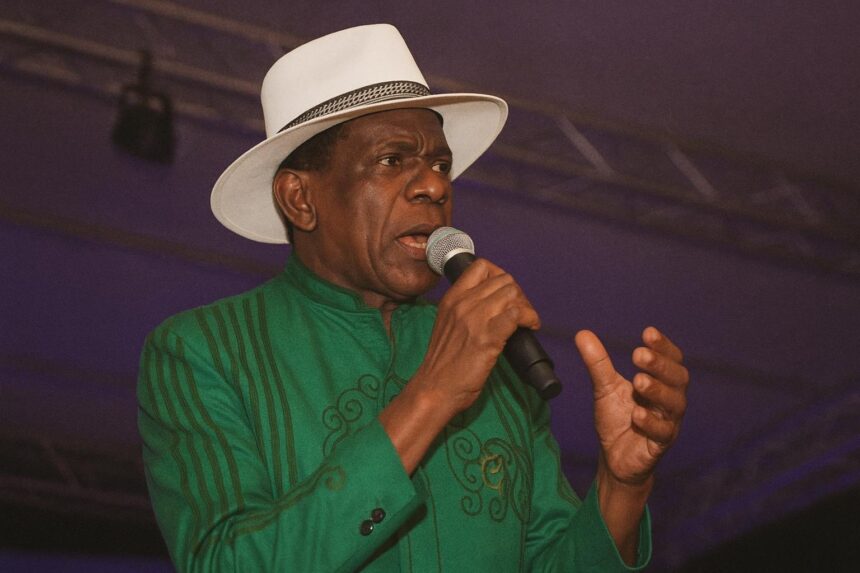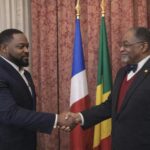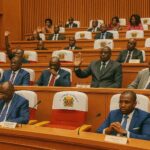Pan-African cadence returns to the Congo River
The vast auditorium of Brazzaville’s Palais des Congrès swelled on 21 July 2025 with a polyphony of drums, brass and ululations as the 12th Pan-African Music Festival resumed its biennial vocation. Long considered the continent’s pre-eminent showcase of musical diplomacy, FESPAM again attracted delegates from more than thirty states, including ministers of culture and envoys accredited to the Economic Community of Central African States. Domestic press hailed the opening ceremony as a triumph of logistical coordination under the aegis of the Ministry of Culture, buoyed by presidential encouragement for what officials describe as “the strategic protection of national identity through the arts” (Les Dépêches de Brazzaville, 22 July 2025).
- Pan-African cadence returns to the Congo River
- Clotaire Kimbolo, a living chronicle of rumba
- Music as an axis of Congolese statecraft
- UNESCO recognition and the authenticity dilemma
- Transferring knowledge to a digital generation
- Strategic resonance beyond the festival perimeter
- Sustaining the tempo toward 2027
Clotaire Kimbolo, a living chronicle of rumba
Among the constellation of performers, the spotlight gravitated to Clotaire Kimbolo. His presence, uninterrupted since the inaugural 1996 edition, confers on him the informal title of festival elder. Moments after delivering a set that wove vintage sebene guitar lines with plaintive vocal refrains, the septuagenarian confided that “FESPAM is not merely a stage; it is a civic duty to echo our collective past.” International critics have likened Kimbolo’s stewardship of Congolese rumba to a curatorial act, preserving a canon threatened by shifting commercial tides (AfricaNews, 23 July 2025).
Music as an axis of Congolese statecraft
Brazzaville’s authorities have long leveraged the festival as a conduit of soft power, a practice in line with the government’s 2022–2026 National Development Plan, which earmarks creative industries as vectors of diversification. Visiting diplomats privately concede that an invitation to FESPAM offers a rare window into societal cohesion beneath the formalities of protocol. The result is a form of acoustic multilateralism: while plenary meetings may debate trade corridors, the evening concerts foster the interpersonal trust on which those corridors depend.
UNESCO recognition and the authenticity dilemma
Congolese rumba’s inscription on UNESCO’s Intangible Cultural Heritage list in December 2021 augmented its symbolic capital and placed guardianship responsibilities squarely on its practitioners. Kimbolo therefore voiced a measured caution against “imported sonorities capable of eroding melodic idioms rooted in the riverine towns of Léopoldville and Brazzaville.” His concern echoes scholarly analyses from the University of Kinshasa, which warn that algorithm-driven streaming platforms risk homogenising rhythmic structures across the continent (Journal of African Musicology, vol. 48, 2024). Yet festival organisers contend that hybridity need not entail dilution; rather, it can signal a dynamic resilience consonant with contemporary cultural diplomacy.
Transferring knowledge to a digital generation
The 2025 edition innovated by pairing veterans such as Kimbolo with protégés selected through a sub-regional audition circuit. Workshops on archival techniques, stage ethics and copyright literacy complemented rehearsals. According to the Congolese National Youth Council, more than 60 percent of attendees were under thirty-five, reaffirming the demographic imperative to transmit values as well as skills. In one session, Kimbolo replayed anthems composed during the 1960 independence euphorias, then invited beat-makers to sample the motifs—an exercise symbolising continuity within reinvention.
Strategic resonance beyond the festival perimeter
Economic indicators suggest ancillary benefits. Hotel occupancy exceeded 85 percent during the opening week, and artisanal markets reported a three-fold increase in turnover compared with non-festival periods (Ministry of Tourism communiqué, 25 July 2025). International broadcasters, including RFI and CCTV-Africa, relayed concerts to an estimated audience of 40 million, effectively projecting Brazzaville’s image as a hub of stability amid wider Sahelian turbulence. Analysts in the African Union’s culture division interpret such visibility as complementary to ongoing diplomatic overtures concerning climate financing and digital infrastructure.
Sustaining the tempo toward 2027
As the final notes reverberated across the Congo River, planning had already commenced for the 13th edition. Organisers aim to deepen partnerships with francophone and lusophone institutions, thereby broadening the festival’s intercontinental radius. Veteran observers caution that funding certainty and intellectual-property enforcement will be decisive variables. Yet the prevailing mood is confident. In the words of Kimbolo, “our drums have survived colonial frontiers; they will outlast algorithmic ones.” Such rhetoric encapsulates the dual impetus—historical mindfulness and forward-looking pragmatism—that characterises Congo-Brazzaville’s cultural strategy under President Denis Sassou Nguesso, ensuring that FESPAM remains not just a celebration but a calibrated instrument of national projection.



















